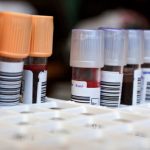Every year, health organizations and institutions around the world partake in the events pertaining to World Cancer Day to raise awareness on pancreatic cancer, colon cancer, breast cancer, and other types of this terrible disease, as well as promote healthy habits – as 30% of cancer deaths are due to lifestyle risks such as obesity, low vegetable and fruit intake, lack of physical activity, smoking, and drinking.
Early diagnosis and treatment is essential for a positive outcome of the disease. Up to 40% of cancers can be cured if the treatment starts early on. The purpose of World Cancer Day is encouraging a proactive approach – summed up in this year’s theme “I can. We can.” – raising awareness on preventative measures and common symptoms of various types of cancer.
Advertisement
Here’s Bel Marra health news roundup on the recent studies and developments on cancer.
Cost of cancer leads to poor survival outcomes
 The financial burden and rising costs of cancer treatment put many patients in debt or filing for bankruptcy, and this added financial stress is shortening their lives, according to latest research. The researchers found that colon, breast and thyroid patients who went into debt had an 80 percent higher risk of early death, compared to those with the same cancer but financially stable.
The financial burden and rising costs of cancer treatment put many patients in debt or filing for bankruptcy, and this added financial stress is shortening their lives, according to latest research. The researchers found that colon, breast and thyroid patients who went into debt had an 80 percent higher risk of early death, compared to those with the same cancer but financially stable.
Lead researcher Dr. Scott Ramsey said, “Bankruptcy, for reasons that we don’t know, is a serious threat to survival for cancer patients.” Continue reading…
Pancreatic cancer diagnosed later in life is especially deadly

Pancreatic cancer is quickly making its way to the top of the list of most deadly cancers and, unfortunately, most diagnosis occur late in life. Nearly 50,000 Americans receive a diagnosis of pancreatic cancer each year – it’s the same cancer that took the lives of Steve Jobs, Luciano Pavarotti and Patrick Swayze. Pancreatic cancer is a form of cancer where a malignancy arises, either from the pancreas duct or pancreatic cells. By keeping an eye out for these cysts, doctors are able to monitor and increase early detection of pancreatic cancer.
Although the rate of pancreatic cancer is not as common as breast, lung or prostate, it is much deadlier than many other cancers. As it stands, pancreatic cancer is currently the fourth leading cause of death by cancer. Both men and women are affected by pancreatic cancer, and it is most commonly diagnosed in patients who are in their 60s or 70s. Smoking and family history, along with chronic pancreatitis, are all risk factors for pancreatic cancer. Continue reading…
Obesity increases risk of colon cancer, link uncovered
 Although it is well-known that obesity increases the risk of colon cancer the exact link has never been quite fully understood. New research has now looked further into the link between obesity and colon cancer and has uncovered the biological connection which could lead to better treatment and preventative options in the future.
Although it is well-known that obesity increases the risk of colon cancer the exact link has never been quite fully understood. New research has now looked further into the link between obesity and colon cancer and has uncovered the biological connection which could lead to better treatment and preventative options in the future.
The study was conducted on mice where researchers found that a high caloric diet turned off a key hormone in the intestine which deactivates a tumor suppressor pathway. Researchers noted that genetically replacing the hormone turned it back on which prevent cancer development. Continue reading…
Cancer treatment could improve with simple blood test

A blood test could now improve cancer treatment by pairing patients with the best form of treatment based on their results. The blood test was developed by UK researchers and could not only improve treatment, but better track tumors as well.
The blood test would be utilized throughout a patient’s treatment to offer “running commentary” on what is going on with tumors, which will indicate how effectively the treatment is working (or isn’t working), and if the cancer has become resistant to the treatment or not. Researchers examined 160 samples of blood from 39 cancer patients with various late-stage cancers.
Advertisement
The blood test filters out tumor DNA to be analyzed for genetic faults. Results of the blood test can better help doctors pick more suitable treatments for the faulty genetics. Continue reading…
Breast cancer risk in young women reduced with high fiber diet
 A new study suggests that a fiber-rich diet in young women may reduce the risk of breast cancer years later. Last week we reported that a high fiber diet may improve lung function, and this week fiber is being linked with a reduction in breast cancer risk, pointing to the importance of fiber in the diet to maintain overall good health.
A new study suggests that a fiber-rich diet in young women may reduce the risk of breast cancer years later. Last week we reported that a high fiber diet may improve lung function, and this week fiber is being linked with a reduction in breast cancer risk, pointing to the importance of fiber in the diet to maintain overall good health.
Lead author of the study Maryam Farvid said, “Previous studies of fiber intake and breast cancer have almost all been non-significant, and none of them examined diet during adolescence or early adulthood, a period when breast cancer risk factors appear to be particularly important. This work on the role of nutrition in early life and breast cancer incidence suggests one of the very few potentially modifiable risk factors for premenopausal breast cancer.” Continue reading…
